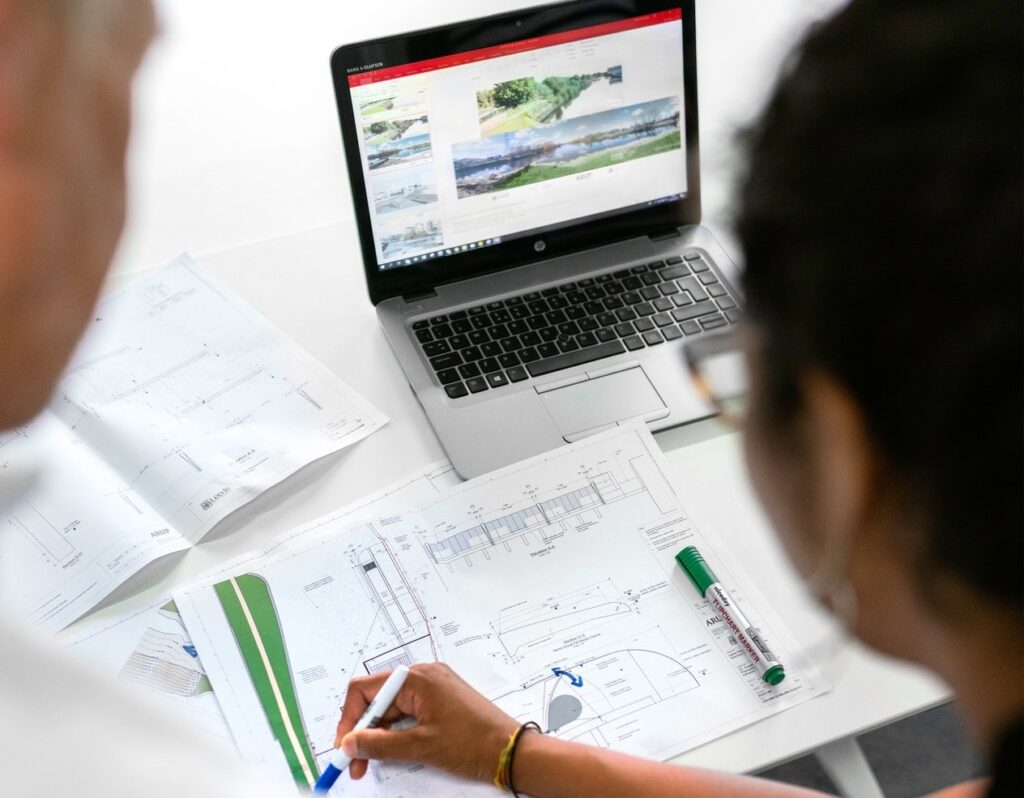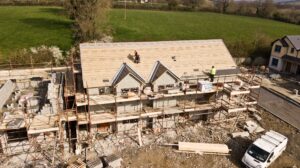
All There is To Know About Construction Management
No matter the type of building you want to construct, there are numerous moving parts that must be properly managed if you want the construction process to be completed on time and under budget. An essential component of any construction process is construction management, which is a fine-tuned system that’s designed to oversee every facet of the construction process. Along with the quality of the building, construction managers must also manage the function, safety, schedule, cost, and scope of the project.
Even though the construction manager oversees nearly every aspect of the construction process, they answer directly to the property owner to make sure that the build is a successful one. While the construction process is ongoing, the construction manager will regularly meet with the build’s engineer, architect, general contractor, and construction crew to make sure that the structure is being completed in accordance with the property owner’s wishes. They will also check in with the property owner to provide them with regular updates.
For someone to work in construction management, they must have a bachelor’s degree as well as strong communication and project management skills. Construction managers are considered to be highly important to the construction process because they facilitate constant forward movement with construction projects and are able to keep construction costs under control.
These individuals will also need to make sure that the entire construction site is free of any safety hazards, which lessens the possibility of injuries to the workers and litigation for the property owner. Likely the most important responsibility for a construction manager is to make sure that all parties involved in the construction process are able to work together without issue. This article offers a more detailed look at what construction management involves and why it’s a highly important element of any construction process.
Construction Management vs. Project Management

The roles of construction manager and project manager are similar in many ways. Both of these roles require planning, directing, and organizing projects until they have been completed. It’s also important to understand that construction managers and project managers are hired to make sure that the processes they manage can be finished at the set budget, on time, and within the target scope. The main difference between construction managers and project managers involves the types of projects that they oversee.
Construction managers can be viewed as project managers with a specific focus on the construction process. Their expertise in general construction, carpentry, plumbing, and electrical systems can be beneficial when managing the day-to-day operations of the construction process, which begins during the pre-construction phase and ends once the building has been made in its entirety. A construction manager will also manage site personnel and subcontractors, run various estimates, and make sure that all resources are available and have been correctly allocated.
Project Managers
Project managers will direct the entire construction project, which extends from the initial design stage of the project to the final construction stage. In many cases, project managers will supervise the construction manager. In comparison, the construction manager is solely responsible for managing the construction phase of the project.
A project manager will perform many of the same tasks as a construction manager but is involved in every step of the real estate project. These steps include:
- Planning
- Site analysis and final selection
- Design and architecture
- Procurement
- Construction
- Moving into the newly built facility
The project’s schedule and budget are the main concerns for the project manager, which is why they work with the owner and construction manager to make sure that the set schedule and budget are met. While the project manager must complete more tasks than a construction manager, the construction manager has more authority when on the construction site. If the project manager has a concern with an aspect of construction, they must first voice their concerns to the construction manager. The construction manager will have the final say on what, if any, changes are made.
Day-to-Day Activities as a Construction Manager

Construction managers have numerous day-to-day activities that they must oversee if they want the construction process to be completed on time and at the set budget. These activities include:
- Preparing work timetables, budgets, and cost estimates
- Hiring any necessary subcontractors and making sure that they understand their daily tasks
- Collaborating with engineers, architects, and other construction specialists
- Complying with building regulations, safety codes, and legal mandates
- Resolving construction site problems, emergencies, and delays
- Reporting the construction timeline, budget, and progress to the project owner and manager
- Explaining contracts and trade information to any other professionals involved in the project
In the event that the construction project involves building a vast industrial complex or completing a project that’s large in scope, the project may require more than one manager. In this situation, a senior construction manager could be placed in charge of several lower-tier construction managers who are responsible for specific aspects of the construction process. These aspects could include the plumbing system, HVAC system, and property foundation.
Becoming a Construction Manager
If you want to become a construction manager, the process for doing so is relatively straightforward. Because of how complex modern buildings have become, the majority of project managers and owners only hire construction managers who have first received a Bachelor of Science in construction science, business management, engineering, or architecture. You could also look into obtaining a construction management degree at a college or university that offers this type of degree. The main subjects that these degrees cover include:
- Construction processes, materials, and codes
- Project design, management, and control
- Mathematics and statistics
- Leadership and administration
- Budgeting, contract administration, and cost estimation
Keep in mind that many of the subjects you learn during one of these degrees can also be learned while on the job. If you want to work as a construction manager and have obtained the necessary degree, you’ll start out as an assistant who works alongside an experienced manager for a period of two years or so.
Certifications of a Construction Manager
It’s possible to expedite this entire process by obtaining a Master of Science degree as well as professional certifications that designate you as a construction manager. If you want to earn a professional certification that would help you skip the “training” portion of becoming a construction manager, there are numerous certifications that you could seek. The three most widely known certifications include:
- Certified Construction Manager – If you obtain a CCM certification, you can earn around 10% more than someone who doesn’t have this certification. To earn this certification, you must have at least some experience as a construction manager and will need to pass an exam that covers subjects like legal compliance, construction management roles, and risk management.
- Associate Constructor – This is an entry-level certification that’s ideal for recent graduates or individuals who are currently transitioning from one industry into construction management.
- Certified Professional Constructor – This is an advanced certification that’s meant to be provided to construction managers who have several years of experience and would like to properly advance their careers. Prospective employers believe that professionals with a CPC certification have the experience and skills needed to complete a construction project of any size or scope.
Final Thoughts on Construction Management

Construction management is among the most important elements of completing a project successfully. Without the proper management structure in place, the budget could spiral out of control. There’s also a possibility that the project would be finished months after the expected completion date. Construction managers are responsible for making sure that everyone involved in the construction process understands what role they have. If any issues arise while the project is ongoing, the construction manager must step in to resolve the issue and make sure that delays are kept to a minimum.
As mentioned previously, becoming a construction manager is relatively straightforward. By earning the correct bachelor’s degree and gaining a certain amount of experience, you can start taking on jobs as a senior construction manager in only six years or less. While the first four years involve education, the latter two will involve an on-the-job experience that’s invaluable for giving you the tools you need to succeed on a long-term basis. If you want to be certain that this job is right for you, there are some basic hard and soft skills that you should develop. These skills include:
- Data analysis
- Program management for task and scheduling estimation
- Contract management
- Risk management
- Budgeting
- Cost analysis
- MS Office
- Decision-making skills
- Leadership skills
- Time-management skills
- Communication skills
If you’re wondering what the current job outlook is for construction managers, this career is expected to increase in demand faster than most other occupations at 8% over the next decade. Demand is currently increasing for the construction of new homes, office buildings, retail outlets, hospitals, and schools. The country’s infrastructure is also in need of improvement when it comes to bridges, roads, and sewer systems. The average salary for a construction manager in the U.S. is just above $95,000 with an upper range of nearly $165,000. Your certifications, experience, and education can play a large role in the annual salary you receive.
In the event that you’re working as the main project manager and are thinking about hiring a construction manager, it’s important to understand that these professionals are essential if you want your project to succeed. Construction managers have comprehensive trade information that can be invaluable during the construction process. For instance, a construction manager can help you procure the appropriate building materials while also making sure that every subcontractor knows what to do and how to adhere to the building designs. The right construction manager may be exactly who you need to keep the project’s timeline and costs in line with expectations.

Jason Somers, President & Founder of Crest Real Estate
With over 15 years of professional experience in the Los Angeles luxury real estate market, Jason Somers has the background, judgement and track record to provide an unparalleled level of real estate services. His widespread knowledge helps clients identify and acquire income producing properties and value-ad development opportunities.
Learn more about Jason Somers or contact us.



